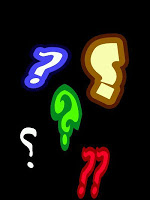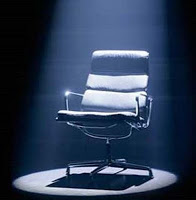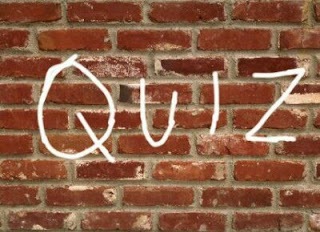What is a quiz?
Well?
A quiz, I hear you cry, is a load of tricky questions, asked by some smug bloke in a pub, the point of which is to enable you to win a bottle of Scotch or a leg of lamb.
Or a TV show where a famously smug bloke asks desperately cheerful families in shellsuits how many people they think might have the same inane opinion on something as they do.
Or it’s sitting in a spotlit chair, answering questions about things you really should know the answers to, having thought about those same things To The Exclusion Of Everything Else for the last three months, making you a pariah amongst anyone who won’t “test me on the history of lampposts of the UK (1879-2005), go on, ask me anything”
No, in fact it’s a discussion about graffiti.
Many words are made up.
Now, that sounds like a bit of a fatuous statement, but quite a lot of words come from a root of some sort, often in a completely different language i.e. Latin, French, etc (In the case of America, of course, most of it came from somewhere else. Although they seem to have a creative way with spelling sometimes)
But that’s ok, we’ve got a sense of humor about it.
But sometimes, new words come along that supersede any ancient root, which is why new words are always being added to the dictionary – yuppie, girl power, chav, all words that have fallen into language through repeated common usage.
My absolute favourite example of this is the story of an Irishman called Daly.
This 18th century Dublin theatre manager bet his mates that he could introduce an entirely new word into the English language, a word with no meaning whatsoever.
Well, his friends took him up on the bet as he was obviously onto a loser with such a ambitious scheme.
So Daly set about his plan without delay, spending the following several hours criss-crossing the city, leaving his enigmatic message wherever he went.
Within hours, people all over Dublin were discussing it, and the subject became such a hot topic that a newspaper ran a story about the graffiti epidemic.
At which point, Daly’s friends had to concede, as everyone was talking about the “quiz” and what it might mean. In fact it went on to be a subject of discussion all over Ireland, and England, for months afterwards.
The word has since been taken to mean the seeking and receiving of answers.
So the next time you see someone looking at you with a quizzical expression, you can tell them why.
dalecooper57 – www.diaryofaninternetnobody.com/




Love it, that story is very gramen.
Thank you…… but gramen?
Gramen? Hmm I don’t know about it, but I love this post. Interesting to read.
That's extremely interesting Dale. Words are constantly changing and there have been times when I'll say something to mean one thing but the reaction of other people have meant that they took it to me the newer meaning. I just can't keep up with it all. And this American way of spelling has confused me over the years. I get to a point where I don't even know if what I'm spelling is right or wrong. What a perlava.
Glad you liked it. Etymology is of great interest to me too.
Interesting post and a bit different from what I normally see here. Try living here in the US where slang and otherwise made up worgsa are now part of our daily lingo, and also in the dictionary! It's all confusing to me.
Thanks RPD, one of my pet hates is their misspelling of aluminium. Missing out letters AND mispronouncing a natural element is a bit much.
Why thank you Phil. For more different stuff, pop on over to the Diary of an Internet Nobody http://www.diaryofaninternetnobody.com/